Gillings School honors 8 faculty members for teaching innovation
April 18, 2023
Students at the UNC Gillings School of Global Public Health voted last month to select the School’s most innovative classroom teachers.
First presented in February 2012, the Teaching Innovation Awards honor faculty members who students feel “improve the learning environment at the Gillings School by integrating new technologies, engaging students in interactive activities, employing creative assessment methods, and introducing and incorporating progressive curriculum ideas into the classroom.”
A $500 prize is intended to help the teachers’ educational development in teaching and learning.
The 2023 award winners are Naim Rashid, PhD, associate professor of biostatistics; Chantel Martin, PhD, assistant professor of epidemiology; Musa Manga, PhD, assistant professor of environmental sciences and engineering; Abigail Hatcher, PhD, assistant professor of health behavior; Melanie Studer, PhD, MSHA, assistant professor and director of undergraduate studies for the Department of Health Policy and Management; Aunchalee Palmquist, PhD, MA, IBCLC, assistant professor of maternal and child health; Anna Kahkoska, PhD, assistant professor of nutrition; Emily Taylor, MPH, adjunct instructor for MPH@UNC.
In their nomination letters, students shared high praise for the achievements and influence that these instructors had on their learning experiences.
Naim Rashid, PhD

Dr. Naim Rashid
“Dr. Rashid teaches BIOS 735, a course in statistical computing. He has a strong ability to relate to students and invite them into complex topics and methods while making them manageable and exciting. Dr. Rashid teaches material in a way that emphasizes the importance of learning skills not just to succeed in a particular class, but to be able to use those skills in future parts of a student’s degree and career path. Dr. Rashid is deserving of a teaching award because of his commitment to preparing students for success in their personal research and careers.”
Chantel Martin, PhD
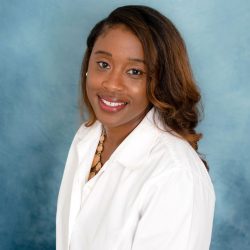
Dr. Chantel Martin
“Learning how to think about social constructs in the context of epidemiological research is a difficult but immensely important skill that is often overlooked in our field. Dr. Martin makes this topic accessible to students in EPID 704 by fostering meaningful and in-depth discussions that help elucidate how social constructs came to be in our society and how we should treat them in our analyses. She also brings invaluable knowledge to the course from a variety of other disciplines, allowing us to bridge gaps in our understanding that we would likely never have encountered outside of this course. I believe her guidance and encouraging attitude have inspired our cohort to apply critical thinking to social constructs in our research when we otherwise would not believe we had the tools to do so. Her dedication to this course has made us all better investigators.”
Musa Manga, PhD
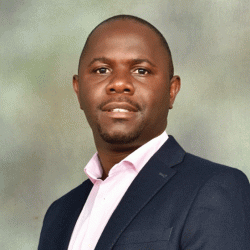
Dr. Musa Manga
“One thing I appreciate about Dr. Manga is that he clearly cares about his students. It is evident he really wants you to do well and learn the concepts. When he helped me publish my first paper, he was kind and guided without being patronizing, even when I had no idea what I was doing. He always looks for opportunities for his students and will send opportunities their way. In my practicum, he helped me diligently with the project and taught me how to put my best foot forward. When I was his student, he had very clear lectures, and I felt like I’ve retained that knowledge beyond the classroom. He always connected concepts to our possible careers, too. I think he’s very intentional in how he connects with students and makes himself available to students as well. He is passionate about sanitation, and that comes across in his classes. He galvanizes his students to invest in the subject matter and truly learn how to think through sanitation issues. I’ve always felt that Dr. Manga wants me to succeed.”
Abigail Hatcher, PhD
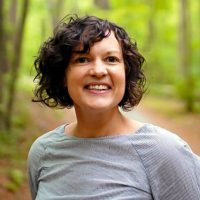
Dr. Abigail Hatcher
“It was a joy to learn from Abigail Hatcher last fall in HBEH 532 (Health Behavior Interventions). With a small class size, Abigail cultivated an environment that allowed students to deepen their understanding of investigating public health issues, brainstorming with others and hypothesizing innovative solutions. Breaking away from traditional lecture PowerPoints, the class investigated real-world intervention strategies through dialogue about pre-read articles (highlighting beneficial qualities to the invention strategies, evaluating study outcomes and exploring how to promote equity in the field better). As students in her class, Abigail focused our learning around collaborative dialog (using fun visual and physical activities to cultivate a sense of openness among the students). Abigail developed an environment that put the fun in learning and asking questions.”
Melanie Studer, PhD

Dr. Melanie Studer
“I have never had a mentor and professor as supportive as Melanie. Not only does she push me academically to think deeper into public health, but she also supports me along the way. Whether it is individually or with a group project, meetings with her are always extremely helpful; she always provides feedback that not just criticizes but helps us move forward if something needs to be redirected. In terms of my career path, my conversations with her have helped me immensely in figuring out what my true passions are and she has even provided connections for who I can have conversations with about their careers. In the classroom setting, Melanie provides a safe space to learn and also promotes healthy conversations. She engages us in every lecture and asks for our thoughts to push us into thinking in the way that she does every single day.”
Aunchalee Palmquist, PhD, MA, IBCLC
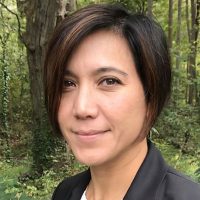
Dr. Aunchalee Palmquist
“I took Dr. Palmquist’s class – Decolonizing Methods in Public Health – in Fall 2022. She had an innovative teaching style that allowed us to dive into readings and then deeply explore in a seminar-style format. We learned from each other and those in the classroom — I think I learned the most I’ve ever learned in my training so far in this class. As a person interested in mixed methods research and applied research, I feel that Dr. Palmquist creates an open, warm environment in which anyone and everyone can feel comfortable addressing their biases and learning how to be better researchers and people as a result of her teaching style and personality. I really can’t speak highly enough about Dr. Palmquist and what she and her class have meant to me as I work toward my degree! I will be carrying forward everything and will likely pivot my dissertation to include principles that she has taught me about.”
Anna Kahkoska, PhD
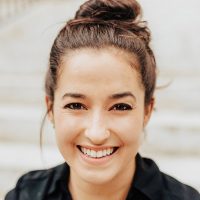
Dr. Anna Kahkoska
“Dr. Kahkoska has served as my nutrition research mentor for the past two years and has supported me unconditionally throughout. From finding symposiums for me to apply to for professional development to providing endless helpful feedback on my honors thesis drafts, she has tirelessly supported me throughout the research process. Despite a lot going on in her personal life, she has made time for me, communicated with me, and made me feel valued, respected and supported. I cannot thank her enough for all she has done, and she deserves every award out there!”
Emily Taylor, MPH
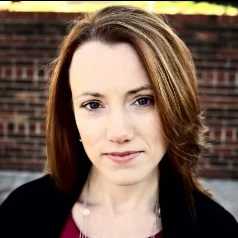
Emily Taylor
“I took SPHG 721 online with Emily and was blown away with the level of thought and preparation she put into each lecture. She never just reread the asynchronous lectures to us; there was always wonderful supplementary material prepared and the discussions were engaging. She gave excellent feedback that really pushed us to be better. I always felt supported but never like I could be complacent about my growth. Emily also took time with anyone both during office hours and after class to clarify questions, teach and share her passion for public health. I remember staying after class one evening to ask a question about an assignment, and she helped walk me through my state legislature’s page. I would have probably never figured out how to properly utilize that resource on my own, but thanks to her assistance, I now use it regularly both for class assignments and for personal advocacy efforts. I recommend her to every other student I talk to.”
Contact the UNC Gillings School of Global Public Health communications team at sphcomm@unc.edu.
